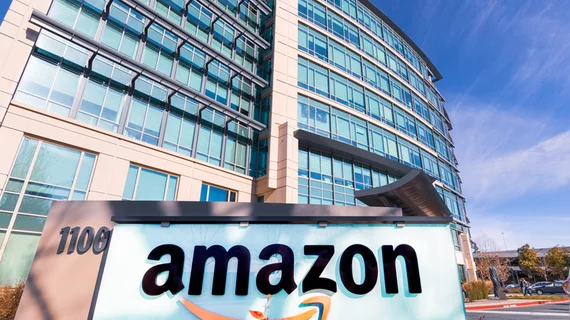Aidoc scores ‘significant’ investment from Amazon, seeks to flesh out radiology foundation model
Aidoc has scored an investment from Amazon Web Services as it seeks to flesh out its AI foundation model in radiology.
The New York-based artificial intelligence firm did not disclose financial terms of the arrangement but noted that the deal is “significant” and spans several years. Aidoc is seeking to further develop its new next-generation CARE Foundation Model, introduced at RSNA 2024.
Different from traditional AI algorithms trained for narrow functions, Aidoc notes, foundation models can adapt to perform a “wide variety of tasks with minimal training.” The vendor is initially turning its attention toward computed tomography, training the model on such images to pinpoint fractures, tumors or other abnormalities across pathologies.
“Unlike previous AI models, including those developed by Aidoc, this model is not focused on specific diseases, but rather on ‘understanding’ CT as a domain of knowledge,” Elad Walach, CEO and co-founder, told Radiology Business by email Wednesday. “Like ChatGPT is not limited to answering specific questions or writing specific texts, this model is not focused on answering only specific questions. It means that it's a model of models, out of which you can derive specific AI models. It allows us at Aidoc, and potentially others, to develop more accurate AI faster.”
Walach said the genesis of Aidoc’s partnership with AWS dates back nine months, when the cloud vendor started discussions with venture capital firm General Catalyst. Amazon Web Services announced Jan. 13 that it is teaming with the Cambridge, Massachusetts, company in a “first of its kind collaboration” to co-develop new AI solutions. Walach said they’ve now chosen Aidoc as a partner, given its “clinically proven results,” and ability to “create tangible, lasting impact in healthcare systems worldwide…all high priority for AWS customers.”
As part of the collaboration, they’ll integrate Aidoc’s foundation model and operating platform into Amazon’s cloud solutions. This will allow for seamless clinical AI deployment across hospitals worldwide. Walach said the partners hope to reduce IT complexity, allowing care teams to focus on patients while lowering barriers for AI developers to create and scale solutions.
CARE is built on one of the largest medical imaging datasets in the world, spanning millions of real-world cases. Aidoc plans to collaborate on ways to extend the capabilities of the foundation model, accelerating development of new uses across other modalities outside of X-ray and CT.
“Bringing the power of AI to bear to support healthcare organizations is a key priority for AWS, and we can't do that alone," Dan Sheeran, general manager, Health Care and Life Sciences, at AWS, said in an announcement shared Jan. 21.
In the coming year, Aidoc plans to expand CARE’s capabilities with new clinical upgrades in collaboration with Amazon. They’ll aim for U.S. Food and Drug Administration clearance of additional applications that address complex conditions, according to the announcement. AWS and Aidoc plan to pilot these developments in real-world settings across the AI vendor’s network of over 1,200 customers globally. The first related FDA submission focuses on triage for rib fractures, with Walach “optimistic around clearance.” Aidoc already has earned 17 clearances from the agency for its algorithms. The company also has raised over $250 million across multiple investment rounds and saw revenue growth of 1,560% from 2020-2023.
“Our CARE Foundation Model is not a test case; it’s the blueprint for healthcare systems globally,” Walach said by email. “It transforms healthcare from reactive to proactive, solving care delivery challenges that have stymied the industry for decades.”

